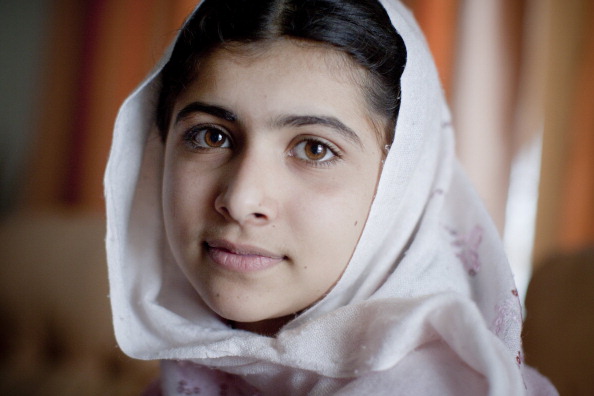
Tomorrow marks the one-year anniversary of the Taliban’s attempted assassination of Malala Yousafzai. Malala, then a 15-year-old girl in Pakistan, bravely stood up against the Taliban’s ban on girls’ education and was shot by Taliban gunmen hoping to scare her and others like her into silence. The Taliban’s efforts failed and Malala survived. She has refused to be silent about girls’ human right to education – and instead, has become an internationally recognized spokeswoman for it.
Awed by her courage, Amnesty International last month awarded Malala our 2013 Ambassador of Conscience Award for her work promoting equal access to education. Amnesty International’s most prestigious award, it is given to individuals who show exceptional leadership in the work to protect and promote human rights and human conscience.
Malala Yousafzai has refused to be silent about girls’ human right to education - and instead, has become an internationally recognized spokeswoman for it.
Education is a human right, and yet, around the world, children, especially girls, face barriers to education because of poverty, discrimination and violence. Globally, two thirds of the world’s illiterate adults are women.
This puts girls at increased risk of other human rights abuses, limits their economic potential and affects their health. Lack of education has lifelong consequences. For girls, lacking an education reduces their opportunities for financial independence. It increases the likelihood that they will enter into early marriage, with its high incidence of emotional and physical ill-health. Lack of education also significantly increases the risks of contracting HIV and of dying in childbirth. It makes it harder for women and girls to navigate society successfully and fully claim their rights.
Education is also a critical tool in preventing violence against women. With one in three women worldwide facing physical, sexual or other abuse during her lifetime, and with some countries having rates as high as 70 percent, it is clear that violence against women is a global epidemic. It is also one of the world’s most pervasive human rights abuses. Violence often keeps girls from receiving an education, limiting their life choices and potential for success and independence.
But violence against women and girls is not inevitable. Like Malala, we can challenge this violence and take action to stop it. In addition to supporting human rights defenders like Malala, you can support passage of legislation like the International Violence Against Women Act. This legislation will ensure that the U.S. government makes ending violence against women and girls a top diplomatic priority. Together, we can end this cycle of violence by investing in and promoting the human rights of girls, including their right to live lives free of violence.
Help us continue to support Malala’s work! On the anniversary of her attack – which was also an attack on girls’ right to education – learn more and take action to end violence against girls and support their right to education. Share your thoughts and messages about Malala and girls’ rights by tweeting at @Amnesty with hashtag #Malala.
